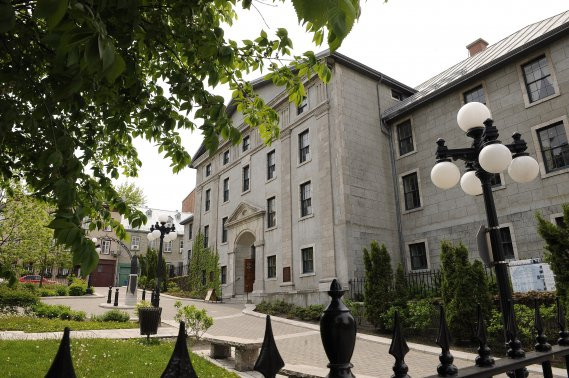
--Sherbrooke, September 21, 2022.
The Quebec Anglophone Heritage Network (QAHN) has partnered with 15 heritage organizations and community groups, all core members of QAHN and from across the province, to support history and heritage research projects and exhibitions that highlight Quebec’s English-speaking communities.
The Belonging and Identity in English-speaking Quebec, a QAHN project funded by the Secrétariat aux relations avec les Québécois d’expression anglaise (SRQEA) will support the development of museum and heritage organizations through exhibitions, research and community-oriented activities over the next six months in six Quebec regions including the Eastern Townships, Montreal, the Outaouais, the Gaspé, Capitale-Nationale, and Côte-Nord.
“This is the third year that QAHN has partnered with local heritage organizations to support projects and activities that engage and connect Quebec’s diverse Anglophone population across the province,” said Heather Darch, director of QAHN’s Belonging and Identity project. “This initiative is enabling QAHN to provide grants of up to $5,000 to heritage and cultural organizations that are core organizational members of our Network which represents nearly $40,000 in public funding.”
“The competition for funding to create projects based on the history and heritage of the English-speaking communities in Quebec was very strong this year, but the final recipients each have presented wonderful proposals and QAHN is delighted to be working with these heritage organizations,” said Darch.
Projects in the Eastern Townships include funding for the Missisquoi Museum to create an exhibition called “Tasting the Past: Food, Memory and Identity in Brome-Missisquoi.” The Lac-Brome Museum will develop an exhibition catalogue that will accompany their 2023 exhibit about the Canadian Home Children, and funding will go to the Bury Historical and Heritage Society for their historic interpretation panels based on the military history of the community.
Groups from Montreal include the Committee for the Enhancement of the Curriculum of the History of Québec (ComECH-QC) that will create a series of oral history interviews with Anglophones reflecting on belonging and identity. The Shaare Zedek Congregation and the Alex Dworkin Canadian Jewish Archives combined, will review and catalogue the synagogue’s collection of documentation and images. “Postcards from Home: The Legacies of Partition in Quebec,” will be the Rang Collective’s virtual exhibit that will highlight the inspiring stories of South Asians living in Quebec. The McGill Community for Lifelong Learning project is intended to be an “intergenerational” oral history initiative and the Canadian Irish Migration Preservation Network has received funding to preserve and maintain the historical integrity of the St-Colomban cemetery.
The Mulgrave-and-Derry Historical Society, located in the Outaouais, will create a new bilingual website while in the Gaspé, both the Cascapedia River Museum and the Douglas Community Centre, will receive funds to create new exhibitions underlining unique aspects of their communities.
The Morrin Centre, located in Quebec City, will be creating a self-guided tour pamphlet about historical objects in their library and will use the project to augment their website and create outreach into their community. CWL Shannon now has financial assistance to purchase high-quality video recording equipment that will allow them to share the annual “Shannon Irish Show” online and the St. Gabriel-de-Valcartier Historical Committee’s idea to connect a hand-painted map and the stories it holds to a virtual audience can be achieved.
Finally, in the Cote-Nord, in the community of Bonne Esperance, the Whitely Museum will produce a short documentary to feature the traditional lifestyle of “coasters.” All of the projects promise to be valuable additions to our collective understanding of the English-speaking community in Quebec.
